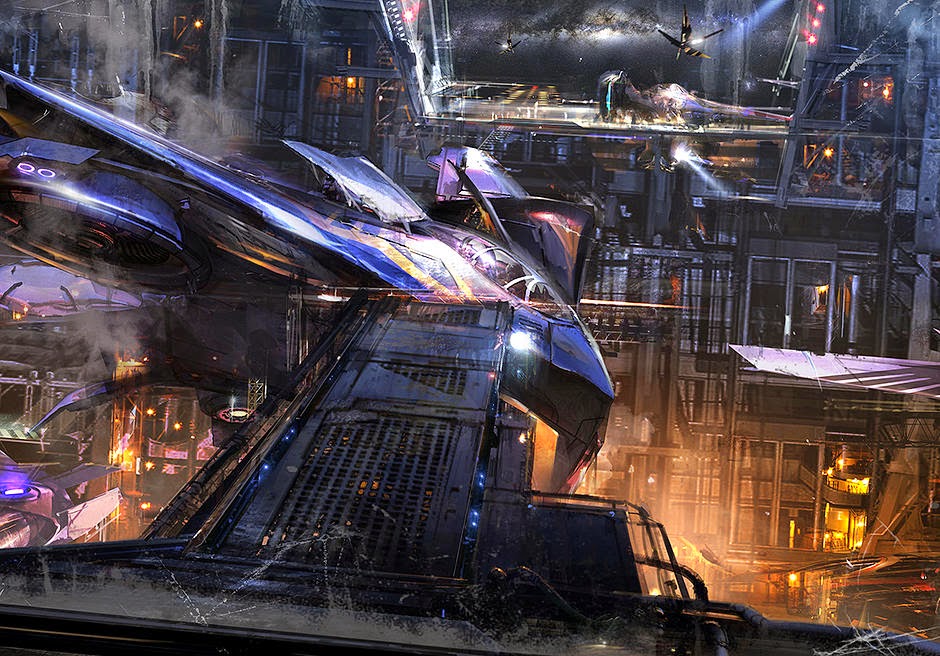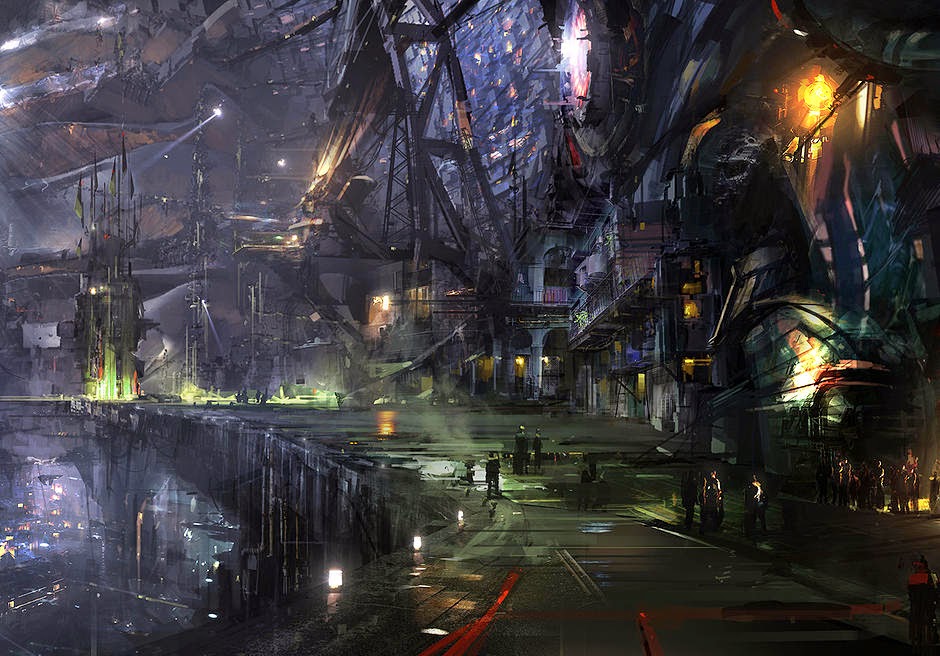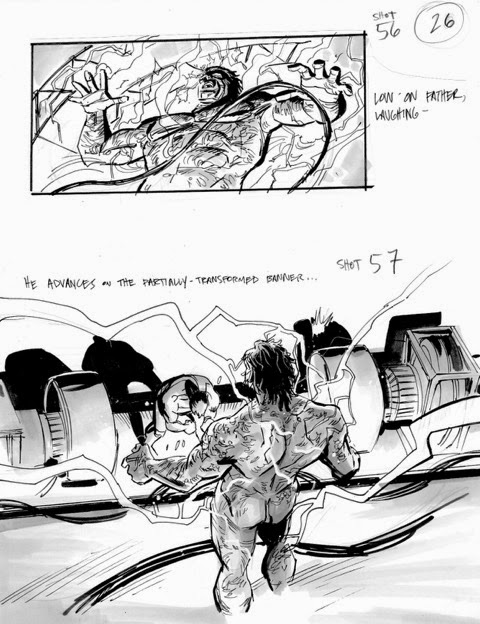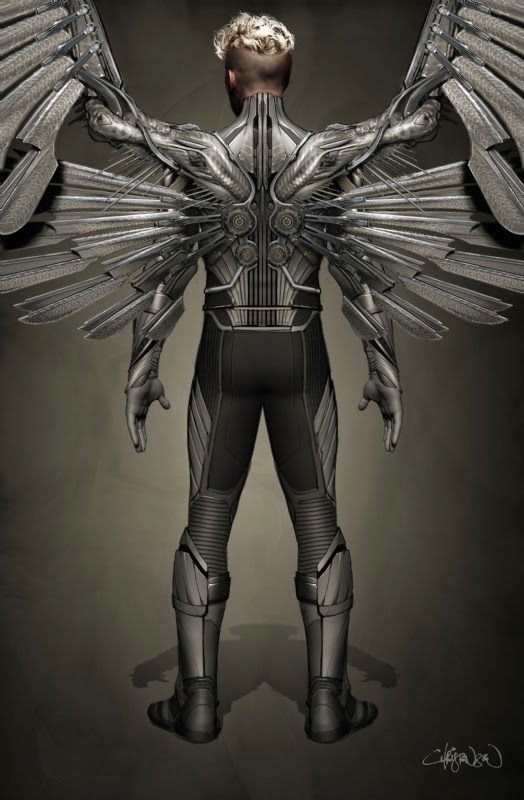 |
| Jupiter Ascending (2015) concept art by Julian Caldow |
The worlds on Jupiter Ascending are wholly original, but the concepts behind it are very familiar. "We started hatching a story like Jupiter after the [Matrix] trilogy, which was, like, 10 years of our lives," says co-writer-director Lana Wachowski. "I was reading 'The Odyssey,' and it was making me super-emotional. The whole concept of these almost spiritual journeys and you’re changed. And I had changed." To create the massive worlds and concepts seen in the film took an army of 22 first-class conceptual designers including Julian Caldow. He was kind enough to do an interview and I talked to him about the challenges of designing for the film and he explains just how complicated something as simple as landing gear can be.
Julian Caldow is a professional concept artist who's worked on blockbusters likeGravity(2014), X-Men: First Class(2011), and Prometheus(2012).
Click on the images to enlarge.
Balem's Lab by Julian Caldow
Jumper Landing gear by Julian Caldow
Refinery
Thanks for your time Julian! What was it like working with the writer-director team of the Wachowskis and production designer Hugh Bateup on this film?
I think the process of visualization for Jupiter Ascendinghad been going on for some time before I came on board. When I went to the job interview I was shown a vast tome of production illustration that had already been done. I think Hugh Bateup and the Wachowskis had a pretty good idea of what the different clans styles would be, so it was really a question of sticking to the vernacular that was already created. Design has always been a big part of the Wachowskis arsenal and in a story like this, which was cutting from one enormous spaceship to some far flung world to some other alien environment, it was important as an audience to know where you were. I think they pulled that off. No mean feat.
While you no doubt worked on many things in the film, what was the major thing that you worked on?
The lab was one of the major things I dealt with. Dave Allday and Sue Whitaker were drawing the set in Vectorworks. We have all worked together before on various projects. It was very much an exchange of ideas. One can draw all kinds of intricate environments. The trick is to translate that into a physical set affordable without too many darlings murdered. I never take it personally when I'm asked to simplify this or use existing set details for that. I think that's one of the main skills of art direction is to use what you can afford effectively. I have never worked on a film where anyone said "Welcome aboard, Julian! We have plenty of time and money". I came up with the idea of these hovering porcelain robots that move along the body-harvesting tables cutting the subjects up. I was pleased with them but I didn't really have time to get too elaborate. VFX added all kinds of details. I think the porcelain idea was junked. Nothing personal I'm sure.
Was there any design that was the most challenging for you and how did you overcome it?
That landing gear was a bit of a nightmare. Every now and then you work on a prop/set for weeks, tearing your hair out, waking up in the night thinking about the problems that need solving and it can get cut from the film or appear to a much lesser degree than had originally been discussed. The Jumper ship was something that had been signed off, but the practicalities of the stowing of the undercarriage was kind of an amorphous problem that was hard to pin down.
I spent ages trying to figure how the thing folded away. The space we had to conceal it was a bit of a cheat. I dreampt about it. [American aerospace manufacturing corporation] McDonnell Douglas and Lockheed have a tinsy winsy bit more time and experience in this field and I found myself chasing my tail on more that one occasion. The concept room would occasionaly hear me barely stifling a stream of expletives while I headed for the door to get "some air". A lot of time and energy went trying to make it look cool/practical. You see it in the film for seconds at a distance. That's showbusiness.
Is there a design that you remember most from the film you're most excited for audiences to see on screen?
The stuff I was excited to see wasn't actually my stuff. George Hull's work on the film was fabulous. His spaceship stuff blew me away. It was beautifully realized in the film as well.
See more of Julian Caldow's wonderful portfolio at http://www.krop.com/juliancaldow/
Click on the links if you want to see more of Julian Caldow's work or Jupiter Ascendingartwork on my blog.
What do you think of the concept art? If you've seen Jupiter Ascending what do you think of the designs?
Official Jupiter AscendingSummary
"Channing Tatum and Mila Kunis star in 'Jupiter Ascending,' an original science fiction epic adventure from film-makers Lana and Andy Wachowski. Jupiter Jones (Kunis) was born under a night sky, with signs predicting that she was destined for great things. Now grown, Jupiter dreams of the stars but wakes up to the cold reality of a job cleaning other people’s houses and an endless run of bad breaks. Only when Caine (Tatum), a genetically engineered ex-military hunter, arrives on Earth to track her down does Jupiter begin to glimpse the fate that has been waiting for her all along—her genetic signature marks her as next in line for an extraordinary inheritance that could alter the balance of the cosmos. From the streets of Chicago to far flung galaxies whirling through space, 'Jupiter Ascending' is written and directed by the Wachowskis."
Directed by The Wachowskis
Cinematography by John Toll
Production Design by Hugh Bateup
Starring Channing Tatum, Eddie Redmayne, Douglas Booth, Tuppence Middleton, Doona Bae, James D’Arcy, Sean Bean
Release Date(s): February 6, 2015
Official Site: http://www.jupiterascending.com
© Copyright 2015 Village Roadshow Pictures, Anarchos Productions, Warner Bros. Pictures, Roadshow Entertainment. All rights reserved
Follow @filmsketchr













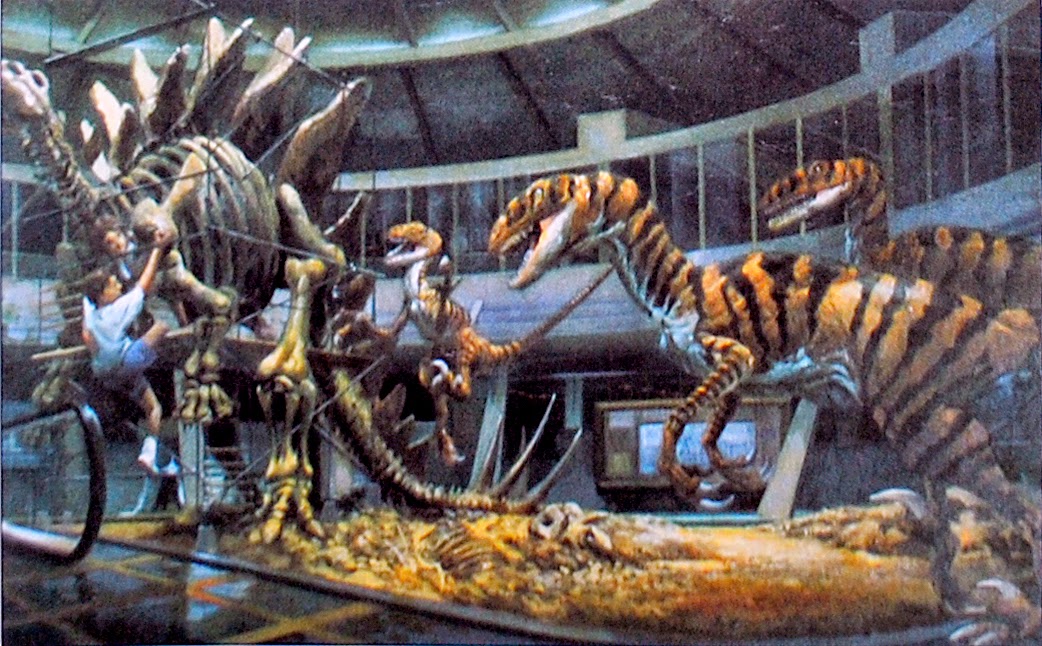






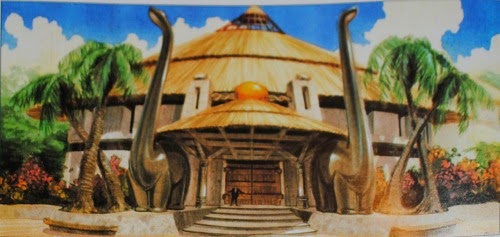

















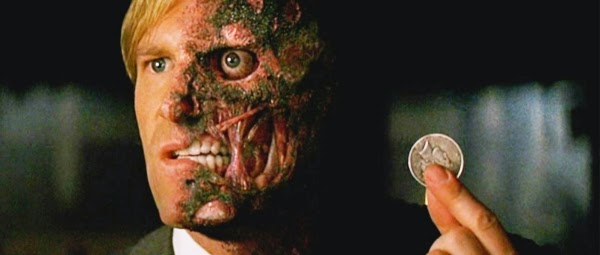






























.jpg)
.jpg)
.jpg)
.jpg)
.jpg)
.jpg)
.jpg)
.jpg)
.jpg)

